
As we move into 2025 and prepare for planting, think carefully about what you can do to set your soil up for a successful harvest. It should start with soil structure, fertility and nutrition. For me, soil testing is absolutely crucial to making good planting decisions – too much and you are wasting money – […]
Read More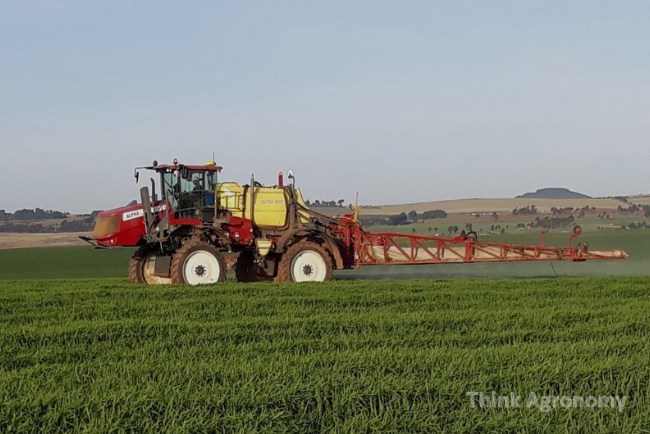
We often focus extensively on grassweed control in cereals, but on many farms – particularly where cereals have been grown year on year – many broadleaved weeds are becoming challenging and robbing us of yield and quality. Thankfully there are many options available so rotating chemistry, if not rotating crops, can be part of the […]
Read More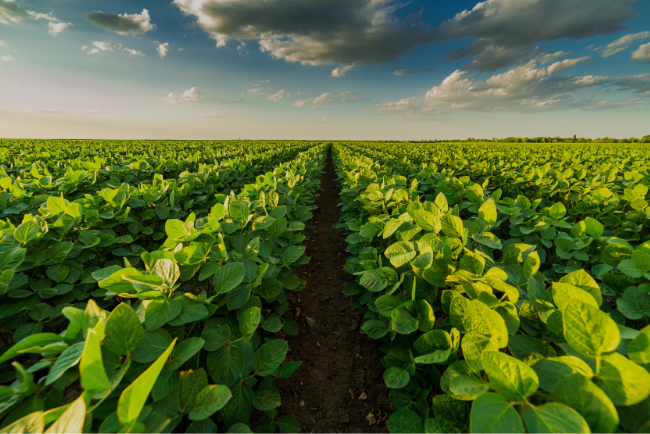
Healthy soils are the foundation of a resilient, high-yielding, and sustainable farming system. But did you know that soil health also plays a critical role in crop protection? A thriving soil ecosystem not only supports plant growth but also creates natural defences against pests and diseases—significantly reducing the need for chemical inputs. Here’s why soil […]
Read More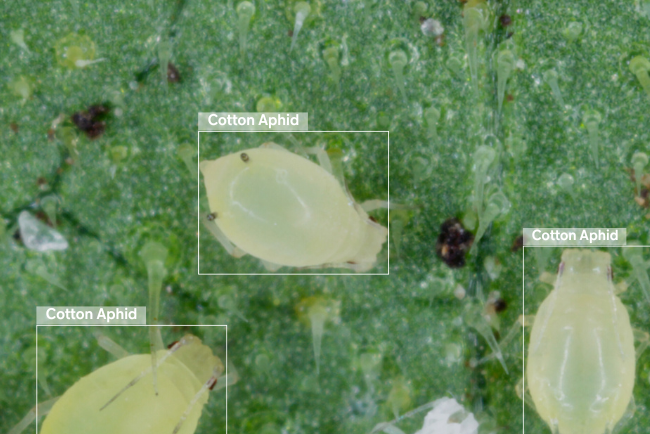
Integrated Pest Management (IPM) is a holistic approach to crop protection that combines various strategies to control pests while minimising environmental impact and economic costs. IPM uses a combination of biological, cultural, mechanical, and chemical methods, emphasising prevention and monitoring to manage pest populations sustainably. Here’s how IPM works: 1️⃣ Ecosystem-Based Approach IPM starts with […]
Read More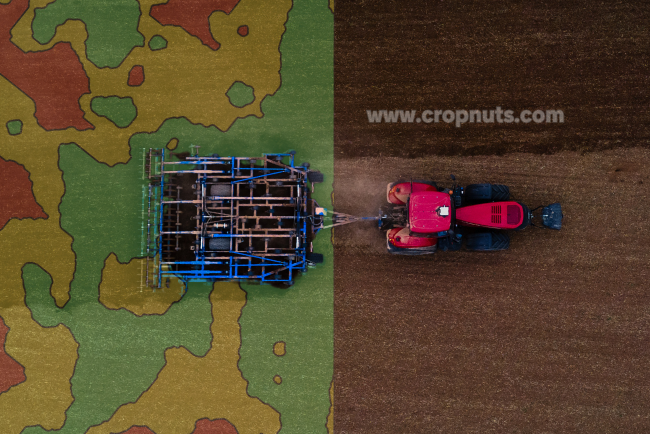
Precision farming, also known as precision agriculture, is an agricultural management approach that leverages data-driven technologies like GPS-guided equipment, satellite imagery, and data analytics to optimise crop production through precise input applications. Instead of a “one-size-fits-all” approach, farmers and agronomists can tailor inputs like lime, fertilisers, and pesticides to match the specific needs of each […]
Read More
We have no excuses. East Africa has produced world-record crops of barley in recent years and coming out of a wet season with a full profile of soil moisture, into a dry and bright finish in January and February, the potential this year is enormous on farms that have taken the long view and found […]
Read More
Pest and disease diagnosis are crucial in identifying crop threats or pathogens early. This proactive approach to crop protection allows farmers and agronomists to make informed, data-driven decisions that optimise pest and disease management, minimise chemical use, and promote sustainable farming. Here’s a breakdown of the pest and disease diagnostics process: 1️⃣ Visual Inspection Pest […]
Read More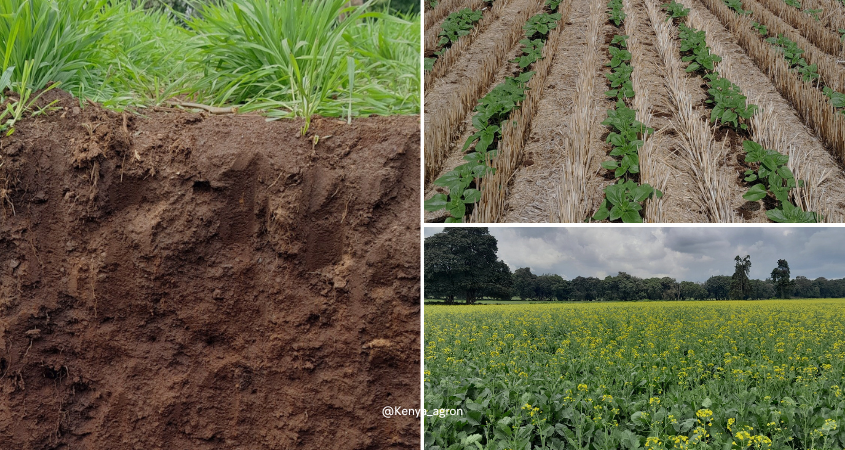
Healthy soils are the foundation for resilient, high-yielding, and sustainable farming systems. Nurturing soil health is the first and most crucial step to reducing inputs, improving crop resilience, and enhancing long-term productivity. Here’s why soil health is critical for every farmer and agronomist: 1️⃣ Enhanced Nutrient Availability Soils rich in organic matter and biological activity […]
Read More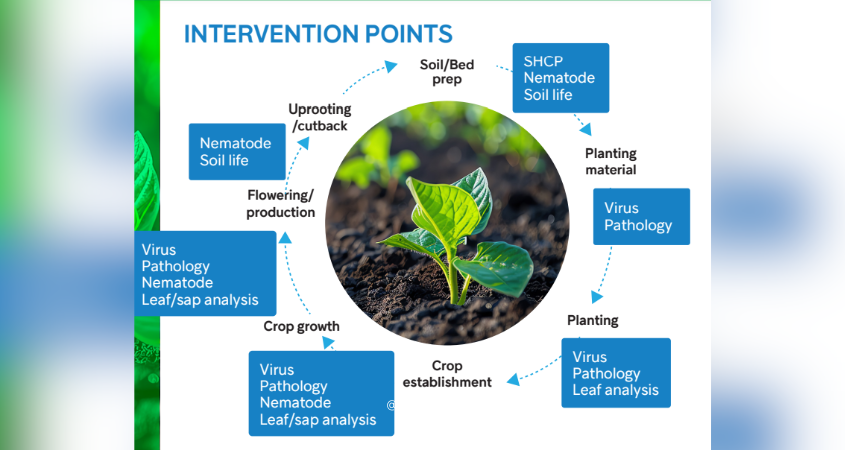
Integrated Crop Management (ICM) offers a comprehensive framework that enables farmers and agronomists to redesign their crop protection strategies sustainably. With ICM, farmers can meet the new market demands of reducing the overall use and risk of chemical pesticides—without sacrificing crop productivity. Here’s how ICM transforms crop protection in line with today’s market challenges: 1️⃣ […]
Read More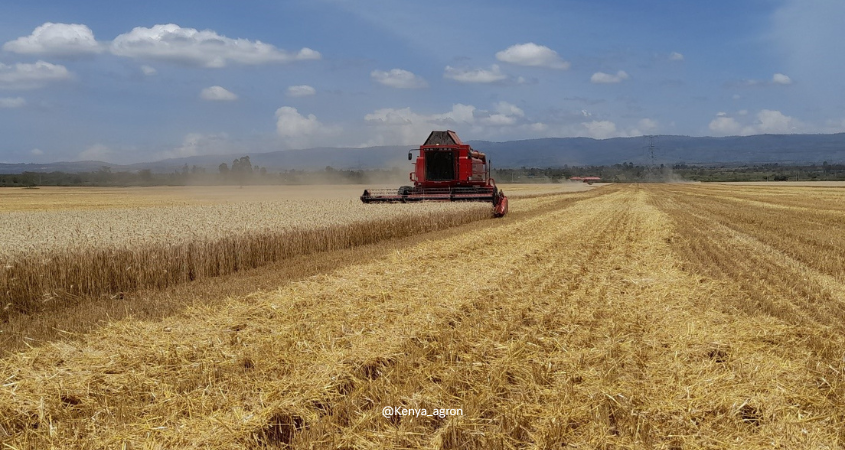
This will be a harvest that is unfortunately remembered for many years to come, for pre-harvest sprouting in wheat. We can’t say we couldn’t have seen it coming after a run of fairly easy, dry harvests but what is different about this harvest is that we have generally moved away from the highest-risk varieties like […]
Read More
Integrated Crop Management (ICM) is a holistic approach that combines various crop production methods and management practices to maximize crop productivity while minimizing adverse environmental impact. ICM emphasizes data-driven decision-making, sustainable practices, and a balance between traditional and innovative farming techniques to ensure long-term farm viability. The key components of ICM include: 1️⃣ Soil Health […]
Read More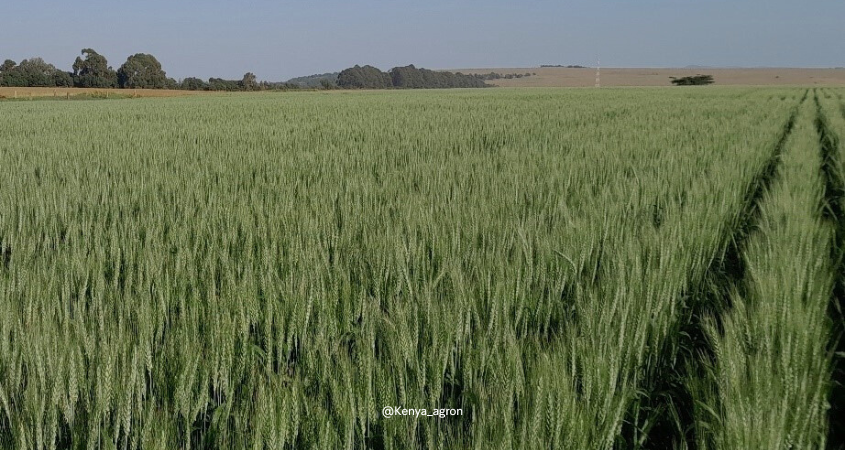
Think Agronomy Newsletter – July 2024 Having recently completed an exercise comparing wheat production costs and gross margins on clients’ farms, it is clear that there are a lot of improvements we can make by learning from each other. Variable costs alone have risen by around 65% in the past five years so it is […]
Read More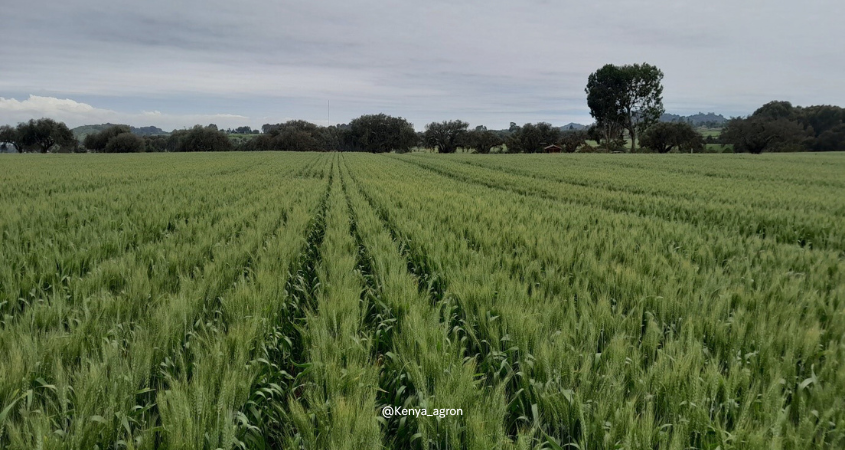
Think Agronomy Newsletter – June 2024 Growing a big crop that looks really promising… in a season with good rainfall… until those tell-tale white bleached ears appear when you are on the home straight. There is nothing more soul-destroying than seeing a great crop become heavily infected with Fusarium. Yield alone will be damaged, but […]
Read More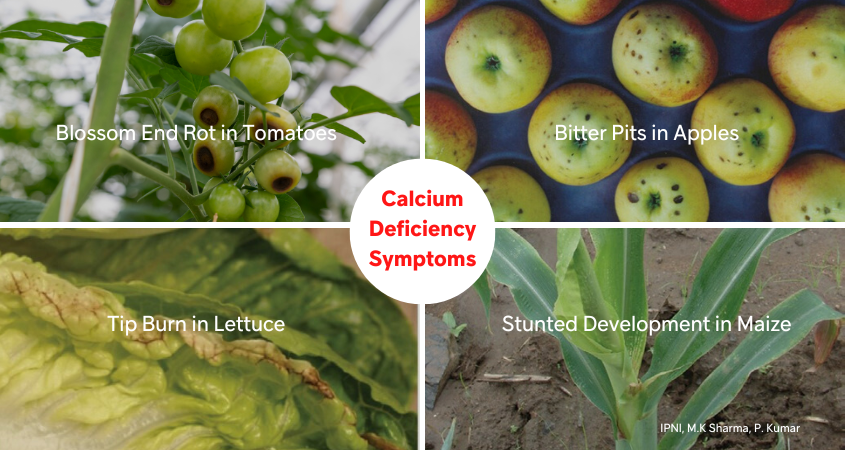
Calcium (Ca) is a vital nutrient essential for robust plant growth and development, yet often overlooked compared to nitrogen, phosphorus, and potassium. In today’s discussion, we will explore the critical role of calcium in plant physiology and its importance for achieving healthy crops and higher yields. 1️⃣ Calcium Role in Plants Calcium is a primary […]
Read More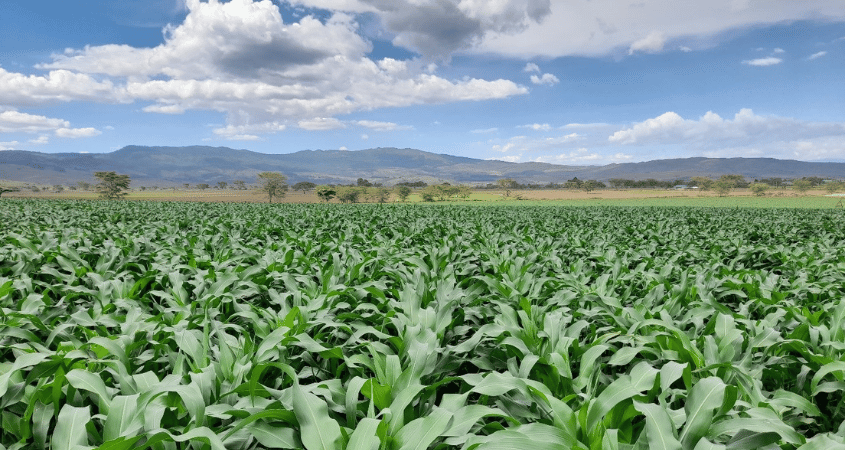
Think Agronomy Newsletter – April 2024 Since its arrival in 2017, Fall Armyworm has for some been a recurring challenge. For others, much less of a problem. I have been slightly surprised this season by the higher levels of damage early on in crops than I have seen in recent years, but these are not […]
Read More
Think Agronomy Newsletter – Updated on Wednesday, 13th March 2024 Visiting the agrovets presents a bewildering choice at this time of year, as that all-important decision around which maize seed to plant comes closer. We take a look at some of the options available for 2024 for high and mid-altitude areas. Highland The choices for […]
Read More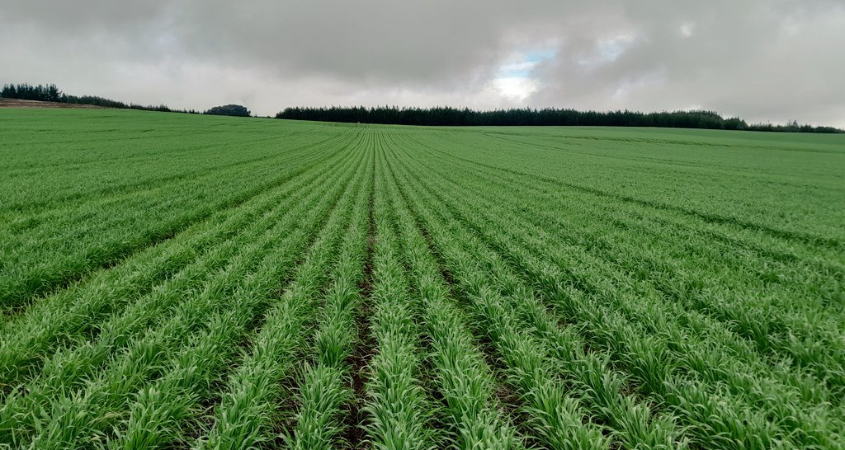
You have chosen your favourite variety, prepared the soil and are ready to plant. Hopefully you have examined the soil structure and taken action to remedy any compaction or structural issues, now you just need to load the planter with seed…. and fertiliser. One of the most important things you can do is take a […]
Read More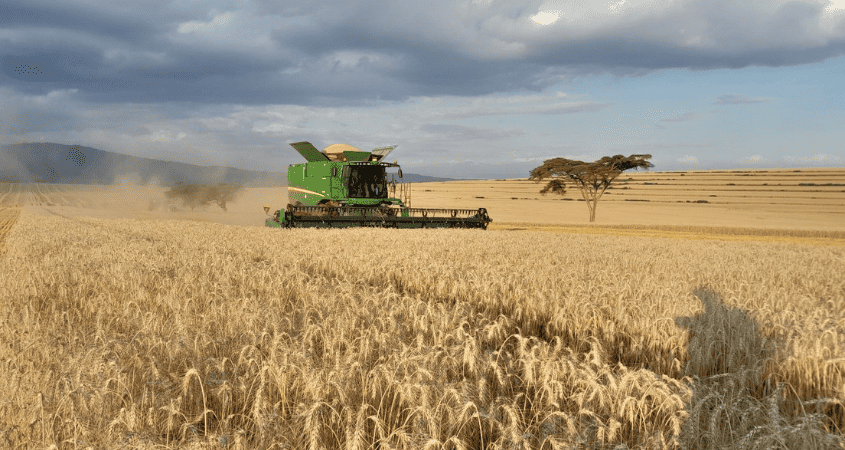
The arrival of a new fungicide that has passed ever-stricter safety and environmental scrutiny, and improves the standard of disease control in crops is always big news. Newly launched fungicide Elatus Arc from Syngenta appears at a time when registering new chemistry is becoming increasingly challenging globally, and resistance to fungicides is developing at an […]
Read More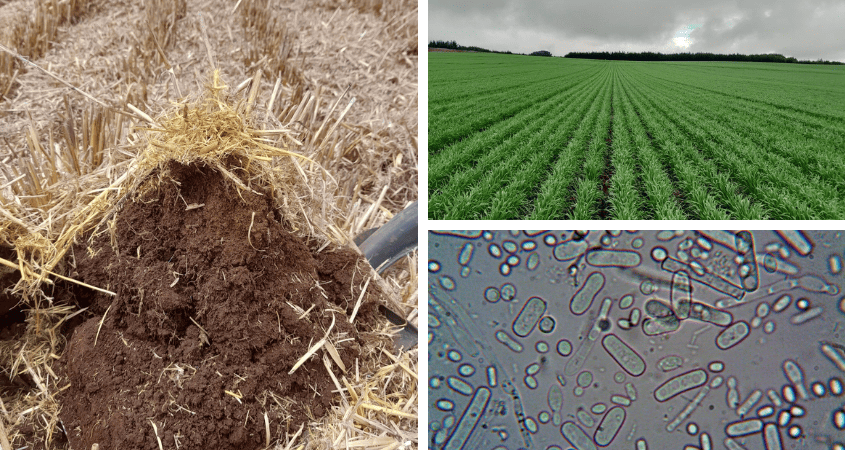
Beneficial soil microorganisms can suppress soil-borne plant diseases through various mechanisms: Antagonism: Some soil microbes act as natural antagonists to plant pathogens. They produce antimicrobial compounds that inhibit the growth and activity of harmful microorganisms. This biocontrol mechanism reduces the incidence and severity of diseases. Competition for Resources: Beneficial microbes compete with pathogens for space […]
Read More
Maize silage is possibly the number one choice for high-yielding dairy cows, with high energy content and high intakes. But what makes a good forage maize variety? After six trials we have found large and consistent differences in yield and feed quality between various hybrids, which should help farmers choose more suitable varieties for high-performing […]
Read More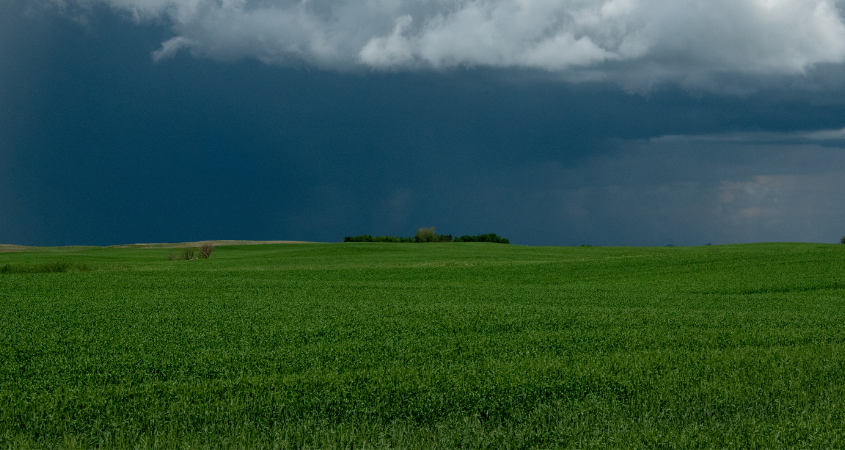
As speculation over an impending El Niño continues to build, growers are advised to plan ahead to ensure that they are not caught out at planting and are in a position to make the most of what could be a high-potential season. Several farmers familiar with the 1997/98 El Niño have told me “Be careful […]
Read More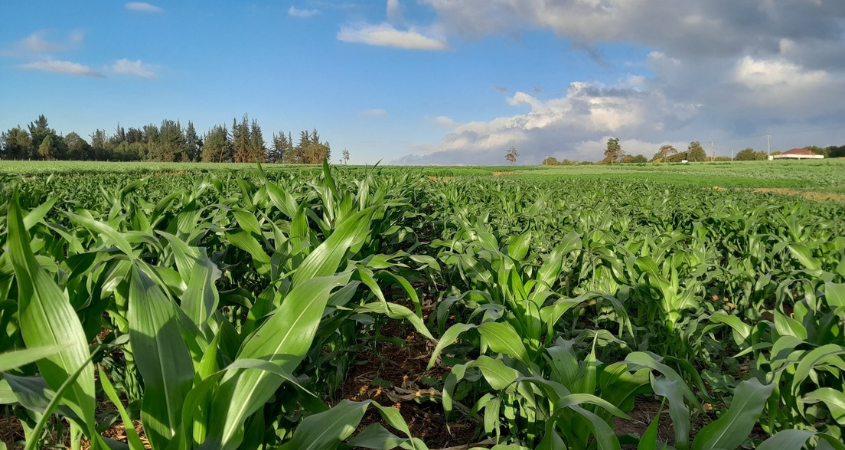
Every time I attend a talk, watch a video, or read an article on crop nutrition, the moment I hear the words “Nutrient X is important for [pollen formation / photosynthesis / insert any other process in the plant]”, I switch off. Whilst it is entirely true that different nutrients perform very different functions within […]
Read More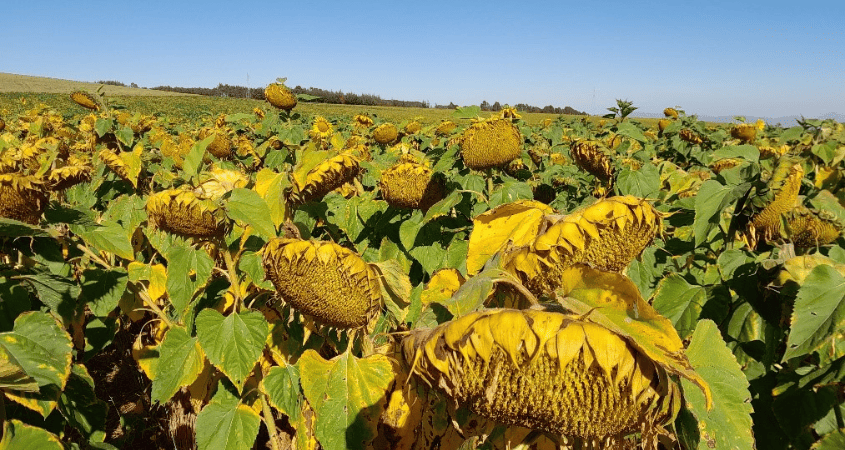
Cash flow, an opportunity to make a bit of profit, improve the soil, and to try out new crops in a lower-risk situation. It may seem a long way off, but these are the reasons why some of the very progressive farmers I work with use off-season crops after maize or wheat. For most farmers […]
Read More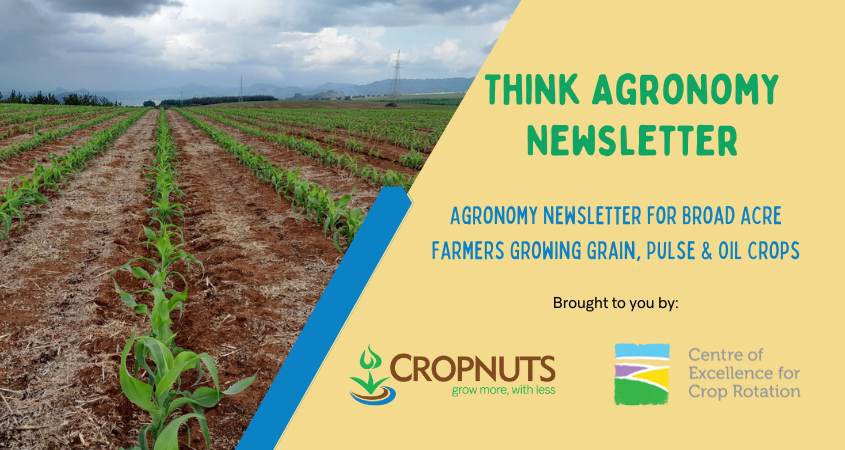
For five years we have tested maize plant populations, and every year we find that the existing advice to plant at 45-50,000 plants/ha does not produce the highest yields or the highest margin – or the best weed control. It is very clear that maize plant populations across the country need a fundamental re-think, and […]
Read More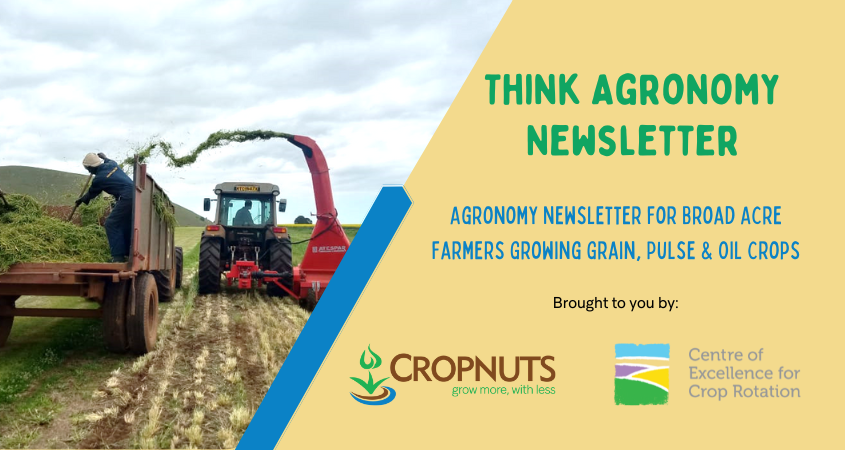
Maize silage Easy to establish and reliable, maize produces a very palatable and high-energy silage provided that it is well chopped and ensiled properly. Typically over 11 Mj of metabolisable energy per kilo, it is a great way of storing crop to feed for livestock later. The main drawbacks are that it needs to be […]
Read More
As we approach the potato planting season, good planning is essential to achieve the best from the crop and maximise your profits. We take a look at the steps to consider: Number 1 is certified seed; you do not need the crop to be held back by diseases such as Blackleg, Black Dot, and Rhizoctonia […]
Read More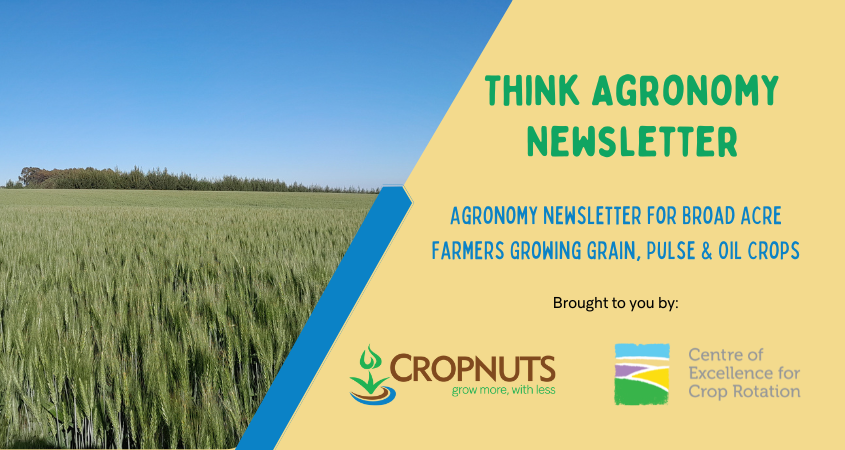
Choosing the right wheat variety is one of the most important steps to growing a profitable and reliable wheat crop. Disease resistance, yield, grain quality, sprouting risk, and many other factors should be taken into consideration so that the chances of achieving a high yield and Grade 1 quality with minimal risk and expenditure on […]
Read More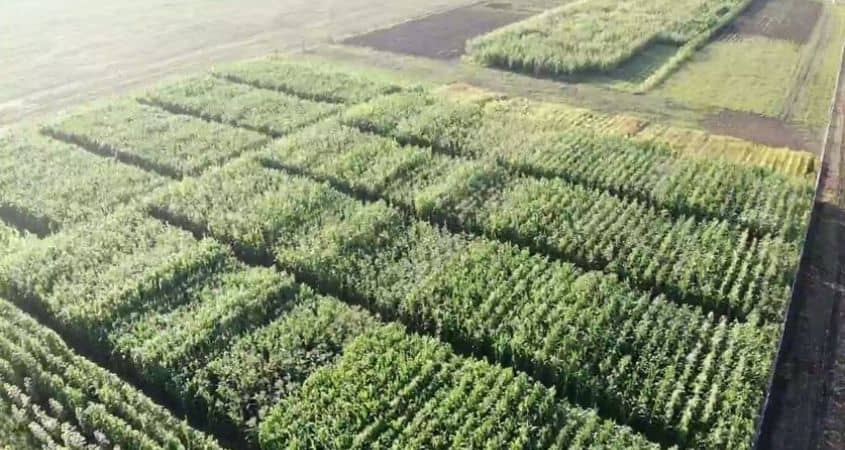
The trials team certainly had high expectations for their Nakuru Maize Variety Trial, but this extraordinary average yield certainly opened their eyes. The Nakuru site is just one of the 8 sites across the country that we’ve test varieties in different climates over the past 12 months. Had we grown the top-yielding variety in this […]
Read More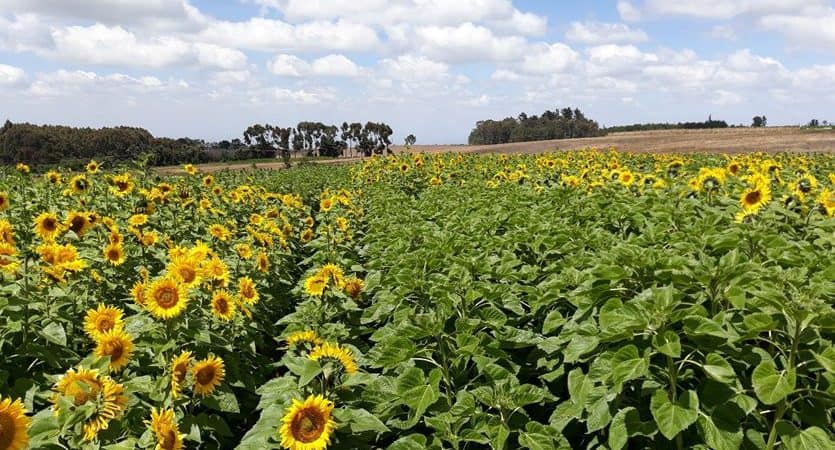
Sunflowers are a fantastic crop for Kenya and can provide extra income for farmers in the off-season as well as many rotational benefits to the soil. But to get top yields it is crucial to check on your herbicides and keep the crop free from weed competition for the first 6-7 weeks. Good planting ensures […]
Read More
For the past three seasons growers have been reporting Fall Armyworm in the tips of cobs from silking right through to maturity, with damage at harvest similar to the photo below. Fall Armyworm numbers have clearly been on the decline since they first arrived in 2017, with some exceptions, and this year they appear to […]
Read More
Bushel weight can make the difference between a profitable crop and one that you can’t even sell. Carrying on from our previous newsletter on how to improve your bushel weight, we take a look at how to get the fungicide program right to maximise your chances of getting a top price for your wheat. Fungicide […]
Read More
When it comes to Potato Farming, Getting weed control right in potatoes is crucial. Furthermore, weeds generally make mechanical harvesting difficult and compete with the crop for nutrients just as the tubers really start bulking. Here, we take a look at some of the weed control herbicides options to receive great yields from Potato Farming: […]
Read More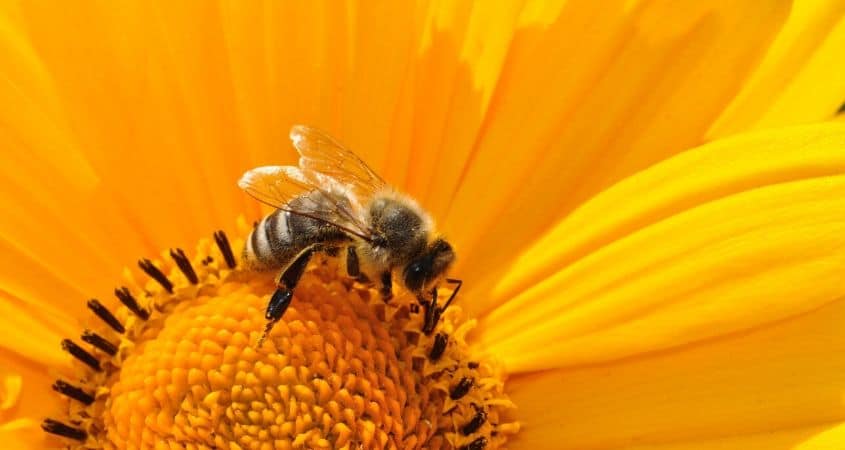
Yields in high value cash & export crops such as coffee, potatoes, avocados, pawpaws, watermelons, oranges, cucumber, passion fruit, etc, hugely depend on the pollination activities carried out by bees, butterflies, birds & other pollinators. Pollinators are essential to the production of many of the micronutrient rich fruits, vegetables, nuts, seeds and oils we eat. […]
Read More
Plant nutrition is the study of the chemical elements and compounds necessary for plant growth, plant metabolism and their external supply. Without proper plant nutrition, plants tend to die off or produce little or no yield. In my line of work I visit hundreds of flower farms a year; the flourishing, the ticking over, and the ones in […]
Read More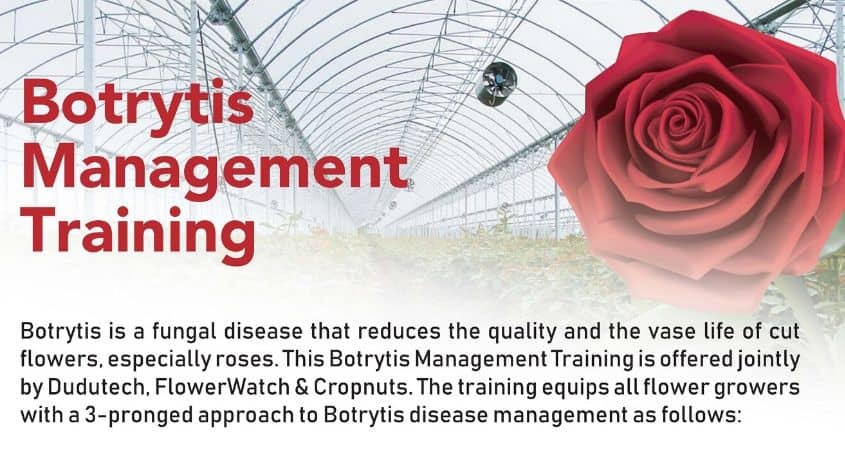
CROPNUTS, Flowerwatch and Dudutech have come together to organize a training on Botrytis Management. The three companies create a good balance to tackle the challenge of Botrytis completely, offering crop nutrition, crop protection and post-harvest disease management strategies. We are keen to address and train farms on how to manage Botrytis. We will have 4 training […]
Read More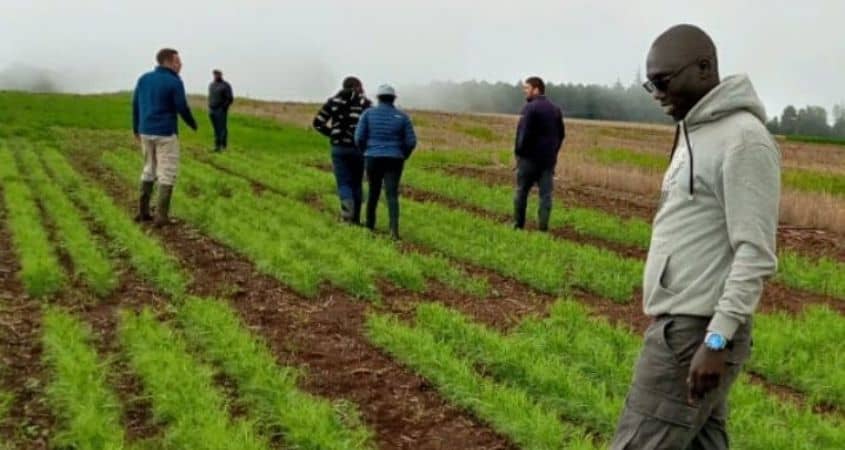
Importance of Molybdenum & Cobalt On Legumes Looking back through some of our legume crop field trials which have focused mainly on peas, the use of molybdenum and cobalt on the seed has consistently shown improvements in nodulation and yield. We know how important molybdenum is on legumes and brassicas in most Kenyan soils so […]
Read More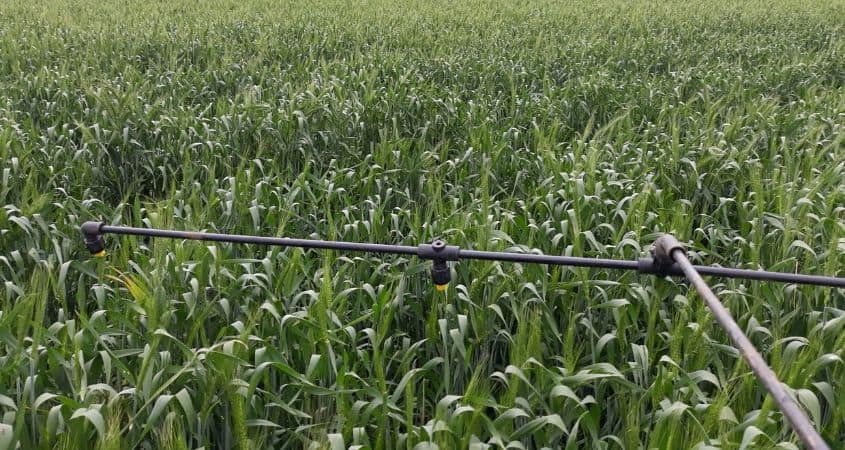
Fungicides are biocidal chemical compounds used to kill parasitic fungi or their spores. Fungi can cause serious damage in agriculture, resulting in critical losses of yield, quality, and profit. Fungicide Classification Fungicides are mostly known by their brand names. But when you want to get scientific about farming, it’s important to understand a bit more about which ones to use in different crops, and […]
Read More
Fall Armyworm control methods discussed in this article are tested by Cropnuts independent Agronomy team. The recommendations given in this article are independent and are not biased to any fall armyworm insecticide company in any way. Fall Armyworm (FAW) or Spodoptera frugiperda , is a new emerging invasive pest that is wreaking havoc in Kenya and many […]
Read More
February 2020 Update The desert locust invasion has spread even further as the map below. This locust invasion is declared the worst in 70 years according to the UN On the shores of Lake Turkana, February 21 Isiolo County, February 23 Sagana, February 5 January 2020 Update The desert locust risk situation in Kenya remains […]
Read More
Think Agronomy is our new, regular broadcast keeping arable farmers updated with tips, tricks and knowledge from our experienced team of independent agronomists. To subscribe to receive our Agronomy newsletters straight to your email inbox, please click here Farmers of every crop type including livestock are being urgent to make plans to deal with the potential locust plague […]
Read More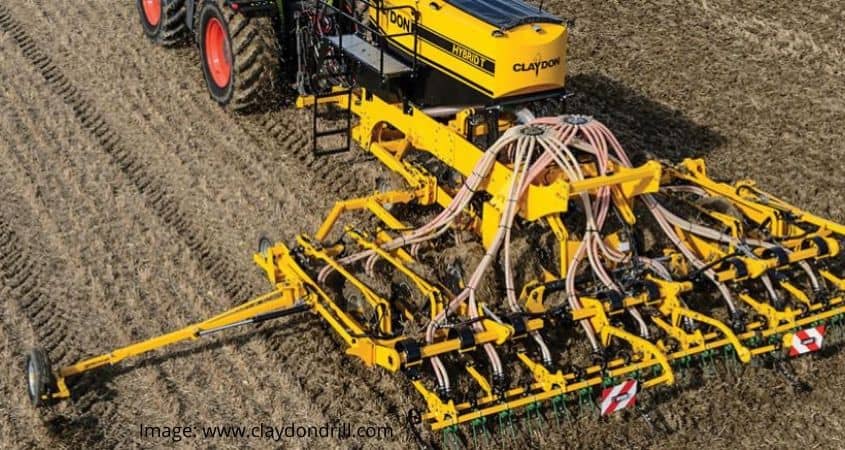
Continuing our series looking at planters, this interesting offering from Claydon is particularly relevant to many farming situations in Kenya… Claydon uses a leading tine to open the soil ahead of a separate seeding tine, meaning that light surface compaction – from livestock grazing in the off-season for example – can be removed at seeding […]
Read More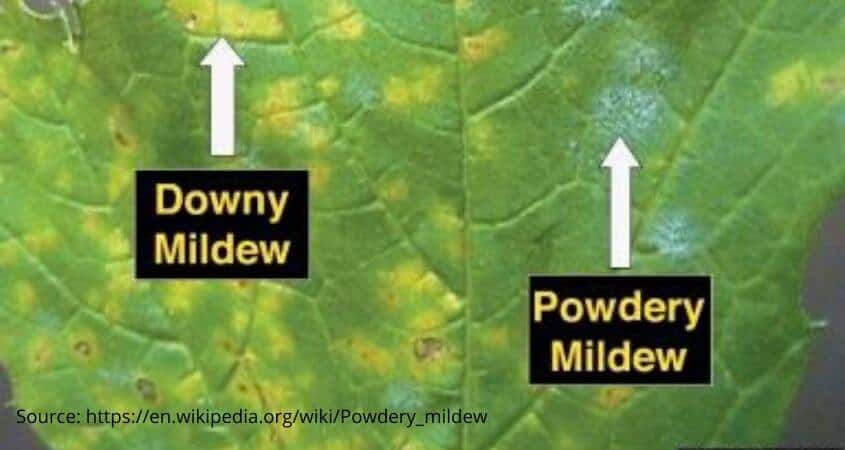
“What’s the difference between powdery mildew and downey mildew and what is used to treat them?” “What is this white powdery substance infesting my tomatoes? Pls help” are questions frequently asked by most first-time greenhouse farmers. Let’s figure out this puzzle together.. Powdery Mildew Powdery mildew is a fungal disease that causes destruction of leaves, […]
Read More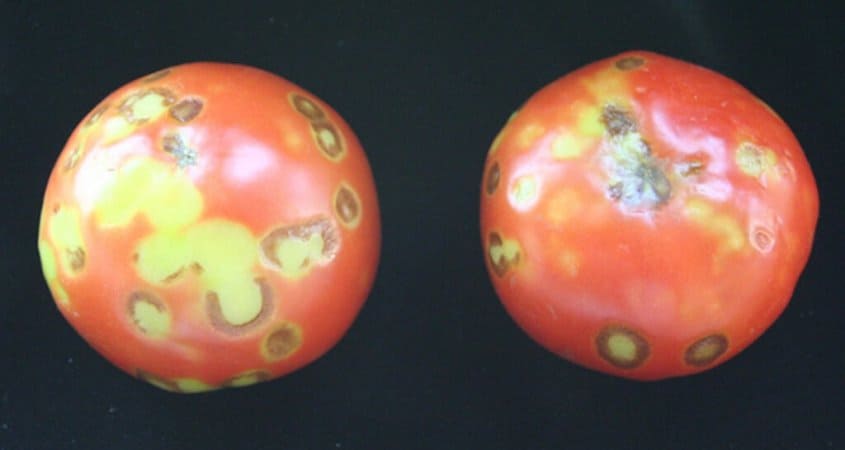
Plant viruses are viruses that affect plants. Like all other viruses, plant viruses are obligate intracellular parasites that do not have the molecular machinery to replicate without a host. Plant viruses are pathogenic to higher plants. They can cause a dramatic decrease in yield, quality and shelf life and even plant death. Plant virus are made up of a strand of nucleic acid (DNA or […]
Read More